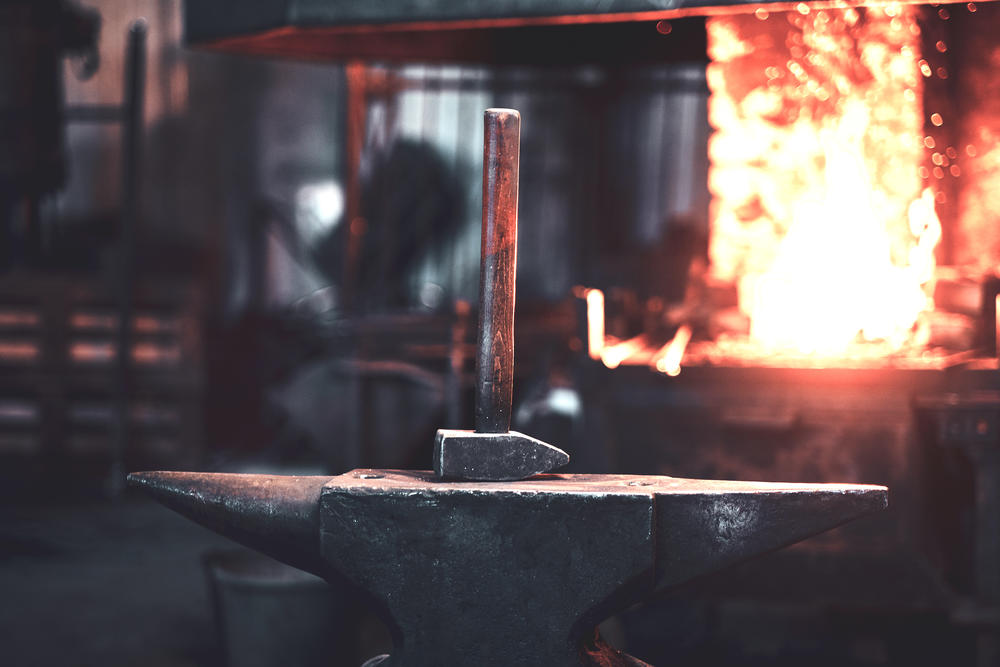
Section Branding
Header Content
Preserving the Memory of Uncle Efford
Primary Content
Is a story worth telling if it doesn’t have a moral or a point? Sometimes, stories without a purpose need to be told if only because the preservation of memories has a value all its own. Salvation South founder and editor Chuck Reece has just such a story for us today.

TRANSCRIPT:
What holds a community together is storytelling. I believe that to the very core of my soul.
But sometimes, we forget that not every story needs to be profound. Some stories don’t need a point, or a moral, but are still worth telling. I highly recommend gathering with folks you love to swap stories over some good food. Don’t worry about making a point. Just talk about family. An aunt, an uncle, a cousin, it doesn’t matter. Just who they were, whether they had a funny name, and what made them special.
One of my uncles on my daddy’s side was named Efford. Funny name. The Social Security Administration has a website that allows you to search for a particular given name.
I entered Efford, and got back the following message: “Efford is not in the top 1,000 names for any year of birth after 1900. Please enter another name.”
No need for that. What’s important here is what I and a few others remember about Uncle Efford. He was my oldest uncle. The first child of my grandmother’s 12 kids to whom she gave birth over the span of 25 years. My dad was the 11th of those, and I didn’t show up until he and my mom had been married for 20 years, which means that by the time I got old enough to remember hanging out with Efford, he was about 70. Efford and my aunt Mary lived right next door to us, just a smidge down the road. He farmed hogs and chickens. Had a smokehouse where he cured his own bacon and country hams.
His only occupation beyond that was blacksmith. When I came to know Efford, there wasn’t much call for a smithy in Gilmer County anymore. In the late 1960s, his only customers were folks who kept horses and needed iron shoes for them. When he needed a make a horseshoe, he’d take me to his shop. He’d start a fire in his forge. Then he gave me the job of pumping the big bellows that kept the coals hot enough to make metal glow and become malleable, so he could beat it with his hammer, on his anvil, into the shape of a horseshoe.
Uncle Efford's most valuable lesson to me was how to stand far enough away from red-hot iron to not get burned. I suppose the only other thing I learned from him is that certain people can, as Efford did, sit on their back porches and smoke Kent cigarettes and drink Mountain Dew all day and still live to a ripe old age.
So is the story of Efford Clyde Reece valuable? Not to most people. But is it worth telling? Absolutely. Why? Simply to preserve his memory.
You can read stories from the South anytime at SalvationSouth.com. And some of them actually have morals.
Salvation South editor Chuck Reece comments on Southern culture and values in a weekly segment that airs Fridays at 7:45 a.m. during Morning Edition and 4:44 p.m. during All Things Considered on GPB Radio. Salvation South Deluxe is a series of longer Salvation South episodes which tell deeper stories of the Southern experience through the unique voices that live it. You can also find them here at GPB.org/Salvation-South and wherever you get your podcasts.
Is a story worth telling if it doesn’t have a moral or a point? Sometimes, stories without a purpose need to be told if only because the preservation of memories has a value all its own. Salvation South founder and editor Chuck Reece has just such a story for us today.






